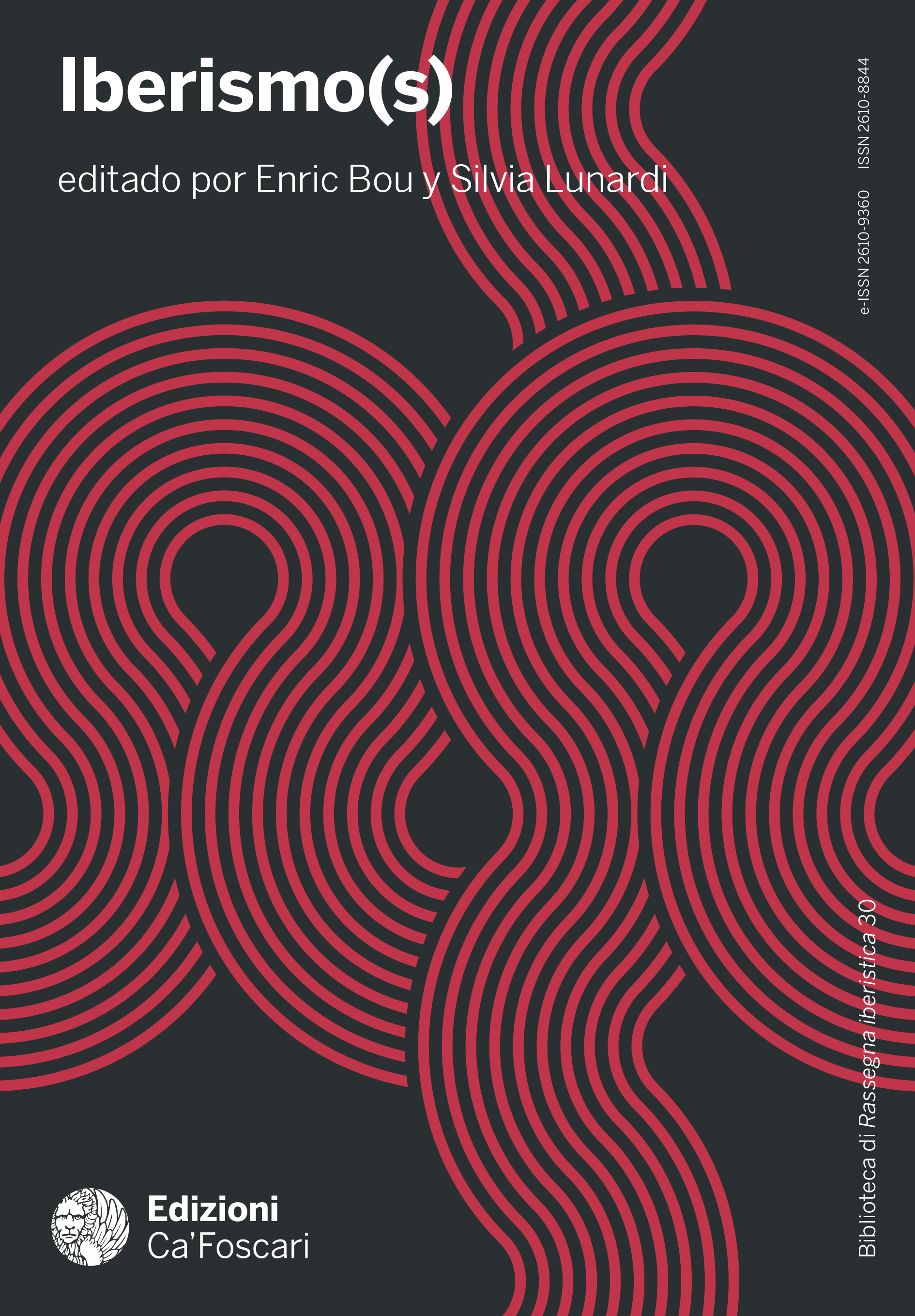
- search 367 views
- file_download 146 download
- keyboard_capslockmetadata
-
mark_email_readIscriviti alla newsletter
Iberismo(s)
a cura di
abstract
This volume is the result of the debates held at Ca’ Foscari University during the Iberismo(s) study day, aimed at discussing the ethical, theoretical and methodological limits of Iberian Studies and demonstrating their applications. Far from a unidirectional reading, the works gathered here explore the multiple aspects of Iberism, or rather Iberisms: different aspects such as the literary, cultural, economic and political ones are taken into account and interpreted on the basis of their plurality – since the diversity of actors, discourses, and contexts makes it impossible to outline a closed narrative. According to Claudio Guillén, “national literature is […] an institution that is not only insufficient, but also spurious and fraudulent”, hence the commitment to redefine this field of study. Moreover, its analytical perspective is associated with the ‘crisis of Hispanism’ as a ‘uninational’ and monolingual paradigm. Iberian Studies as such do not take root in a simple broadening of the object of research in order to give space – and thus a new location – to the more peripheral realities; it is rather a theoretical and methodological reformulation in constant development, as all the essays in this volume attest.
-
Keywords keyboard_arrow_down
Iberian Studies • Unamuno • Paratexts • Literary Theory • Spanish crime fiction • Early Francoism • Decadence • Iberian Peninsula • Revista Ocidental • Maragall • Cultural Studies • Rêverie • Hispanism • Barcelona • Iberisms • Sluizer • Catalanism • António Ferro • Allegory • Portugal • Alberto Martín-Artajo • Cartas peninsulares • Cinematographic Transposition • Nationalism • Women • Iberianism • Saramago • Geração de 70 • Iberism • Emilia Pardo Bazán • Thresholds • Febo Moniz • Carpentier • Oliveira Martins • Realist Iberism • Geopolitics • Regeneration • Cultural Iberism • Europe • Periphery • Instituto de Estudios Hispánicos de Barcelona • Alicia Giménez Bartlett • Joan Estelrich • Modernism • Editorial Boom • History of the Discipline • Eugenio de Castro
Sommario
- search 63 view
- file_download 10 download
- search 43 view
- file_download 5 download
- search 50 view
- search 53 view
- search 30 view
- search 123 view
- file_download 12 download
- search 33 view
- search 61 view
- search 57 view




